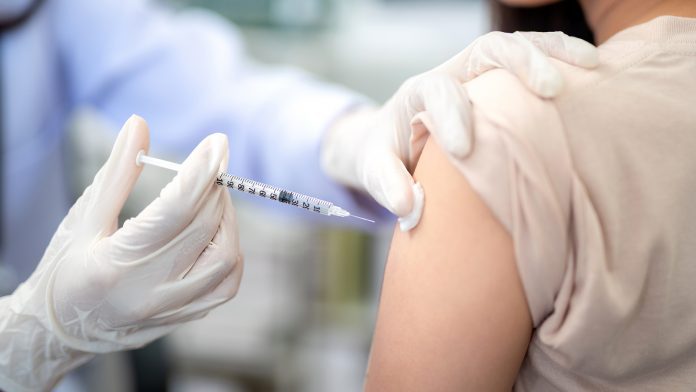
Researchers have developed a method that could enable a personalised flu vaccine schedule for long-lasting immunity.
Influenza affects up to five million people worldwide per year and results in up to 650,000 deaths per year. The flu vaccine efficacy varies between individuals depending on vaccine types and individual circumstances, emphasising the need for personalised medication.
Professor Alexandre Reymond, from the Center for Integrative Genomics, University of Lausanne, Lausanne, Switzerland, and chair of the conference, said: “Personalised health is all about identifying the fraction of individuals of the population who are at risk to be able to treat them specifically. Importantly, this will benefit these individuals and decrease the health system’s burden, which will benefit everybody.”
Spotting host immunity and how this could change flu vaccine schedules
The research, presented at the European Society of Human Genetics meeting, uses technology to classify host immunity in individuals, which could lead to the early identification of those who will not respond to a regular flu vaccine schedule. This vital information means individuals could receive different vaccine regimes to provide them with long-lasting immunity and would reduce the financial burden that influenza-related illnesses have on healthcare systems.
Dr Nhan Nguyen, a postdoctoral researcher at Professor Yang Li’s group, from the Centre for Individualised Infection Medicine, a joint venture of the Helmholtz Centre for Infection Research and Hannover Medical School, Hannover, Germany, and colleagues took blood samples from 286 healthy donors aged 18-81, 45% were women, during four influenza seasons to identify who would be unprotected after the flu vaccine.
“After examining their pre- and post-vaccination antibody status, we used multiomics1 technology to identify proteins and metabolites that could serve as predictive markers for the identification of individuals who have low levels of protection even after vaccination,” said Dr Nguyen. “This is a more sophisticated way of identifying such people than that which is used at present, where protection is assessed solely by changes in the number of antibodies in the blood pre- and post-vaccination.”
The flu vaccine is updated yearly in response to variations in the virus, and this means that the pre-vaccination antibody level can differ in individuals due to previous infection or vaccine history. The current vaccine response calculation may therefore, not provide host-specific information that is sufficiently accurate to estimate a person’s immune response and/or vulnerability to future infections, since some people already have high antibody levels at pre-vaccination that do not change significantly after they have received a vaccine.
The results were consistent over the four flu seasons and the four different updates of the flu vaccines. “Each seasonal influenza vaccine is designed to protect against three or four different flu viruses, so a lot of factors are involved in an individual’s vaccine response. We aimed to identify the robust signals of response that spanned across different influenza seasons and were consistent despite the variations in the response of the same individual to different flu viruses,” said Dr Nguyen.
Using biomarkers to identify vaccine response
The researchers are hopeful that the identified biomarkers related to an individual’s vaccine response will enable the development of personalised flu vaccine administration, for example, higher dose vaccines, repeated vaccinations, or vaccines including an adjuvant to boost response. These biomarkers will reduce the cost of vaccine response screening and increase protection against infection. The research team believe that their findings could lead to individualised adapted strategies for the administration of flu vaccines.
“We are now testing a molecule that could act potentially as a predictive biomarker as well as a modulator of influenza vaccine response. We are also exploring the possibility of developing a market product, such as a diagnostic test based on our results. And we hope to further explore the idea of personalised influenza vaccination based on the biomarkers we have identified in this study,” Dr Nguyen concluded.










